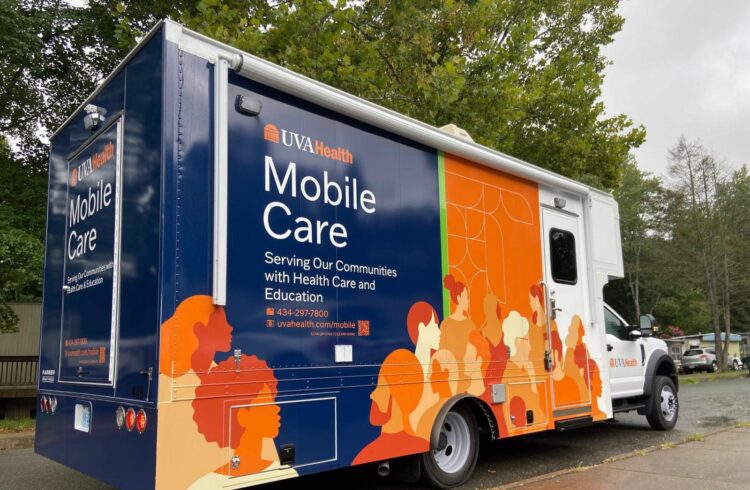
A new study from the University of Virginia Health System has found that academic researchers who are highly reliant on industry support are most likely to have experienced questionable pressure from sponsors and to have first-hand knowledge of integrity breeches within their work environment. Those breeches not only compromise the well-being of medical research participants but also impact research initiatives, publication of results, interpretation of research data and scientific advancement.
Funded by the National Institutes of Health, through the Office of Research Integrity, the UVA study was published in the March 2009 issue of Accountability in Research and marks the first attempt to acquire updated empirical data about financial arrangements and conflicts of interest between industry and investigators at academic research institutions.
The study was conducted via a survey mailed to 1,548 clinical and nonclinical researchers at the 33 U.S. universities that receive the most research funding. To encourage candor and protect anonymity, the survey did not ask respondents to report their own behavior. Rather, it asked about their first-hand knowledge of questionable research integrity practices in their institutions and departments.
The study achieved a 48 percent response rate (703/1479) among medical and nursing school researchers. In all, completed surveys were received from 528 medical school researchers and represented every targeted institution. Respondents were predominately male, experienced, widely-published, senior-ranked researchers. Key study findings included:
Most prevalent forms of industry support – Sixty-six percent of respondents reported receiving industry support, the most prevalent forms of which were: research contracts or grants, honoraria, biomaterials, trips to professional meetings, support for staff or study coordinators, support for students or fellows, discretionary funds or gifts to the researcher’s institution, equipment, funds for publication costs and personal gifts of more than $100.
Questionable requests from industry sponsors – A minority of the 231 respondents funded by industry reported receiving questionable requests from their sponsors – 13 percent were asked to delay publication of research; nearly 8 percent were asked to tailor presentations to favor a sponsor’s drug or product; 7 percent were asked to keep their research secret; and 4 percent were asked to withhold results from publication.
However, the frequency of questionable requests was considerably higher among the 80 survey respondents who received several forms of industry support and rated that support as very or extremely important. “We found that 28 percent of these investigators had been asked either to withhold results, delay publication, present results more favorably or keep the project secret,” says the study’s lead author, Patricia M. Tereskerz, J.D., PhD, director of the Program in Ethics and Policy in Healthcare at the UVA Center for Biomedical Ethics and Humanities.
Compromises in industry-supported research – When questioned about their first-hand knowledge of industry-supported research that had been compromised, only a small minority of respondents answered affirmatively. But, such knowledge was significantly higher among a subset of 94 respondents who rated industry support most important: 25 percent had knowledge of sponsor-initiated publication delays, 17 percent knew about results being reported to favor a sponsor and 11 percent were aware of instances when sponsors had suppressed publication.
Compromises by colleagues supported by industry – Fifty-nine percent of respondents reported that colleagues within their department or work unit were receiving industry support. This group was more likely than respondents without colleagues supported by industry to have first-hand knowledge of delayed publication, results presented to favor a sponsor and suppression of results. This group attributed other integrity breeches to industry sponsorship, including compromises in the publication of research results, in the interpretation of data, in research initiatives and in scientific advancement.
Compromises to well-being of research participants – Of the 173 respondents with colleagues supported by industry, 15 had first-hand knowledge that sponsorship had caused compromises to the well-being of research participants at their institution. Forty percent of these cases involved serious or significant well-being compromises.
“Although such compromises occur infrequently, our concern is that they occur at all,” notes Tereskerz. “There should be zero tolerance for compromising the well-being of human research participants in any study, regardless of how the study is funded.”
Disclosure practices – Responses from 139 medical researchers indicate that many institutions do not require investigators to disclose their relationships with industry to research participants. Disclosure practices at such institutions vary considerably.
According to Tereskerz, study findings offer three major take-away messages:
While financial relationships with industry are prevalent and considered important by academic investigators, these relationships are associated with compromises in research integrity. Efforts to educate academic researchers about their moral obligations regarding conflicts of interest have not succeeded. Many investigators in leading U.S. universities know about integrity breeches in industry-sponsored research, raising concerns about a culture of silence within academia and about the reluctance of researchers to perform self-monitoring.
In addition to Tereskerz, study authors were Ann B. Hamric, PhD, RN, of the UVA School of Nursing, Thomas M. Guterbock, PhD, of the UVA Center for Survey Research and Jonathan D. Moreno, PhD, Professor of Medical Ethics and of History and Sociology of Science at the University of Pennsylvania in Philadelphia, PA.


